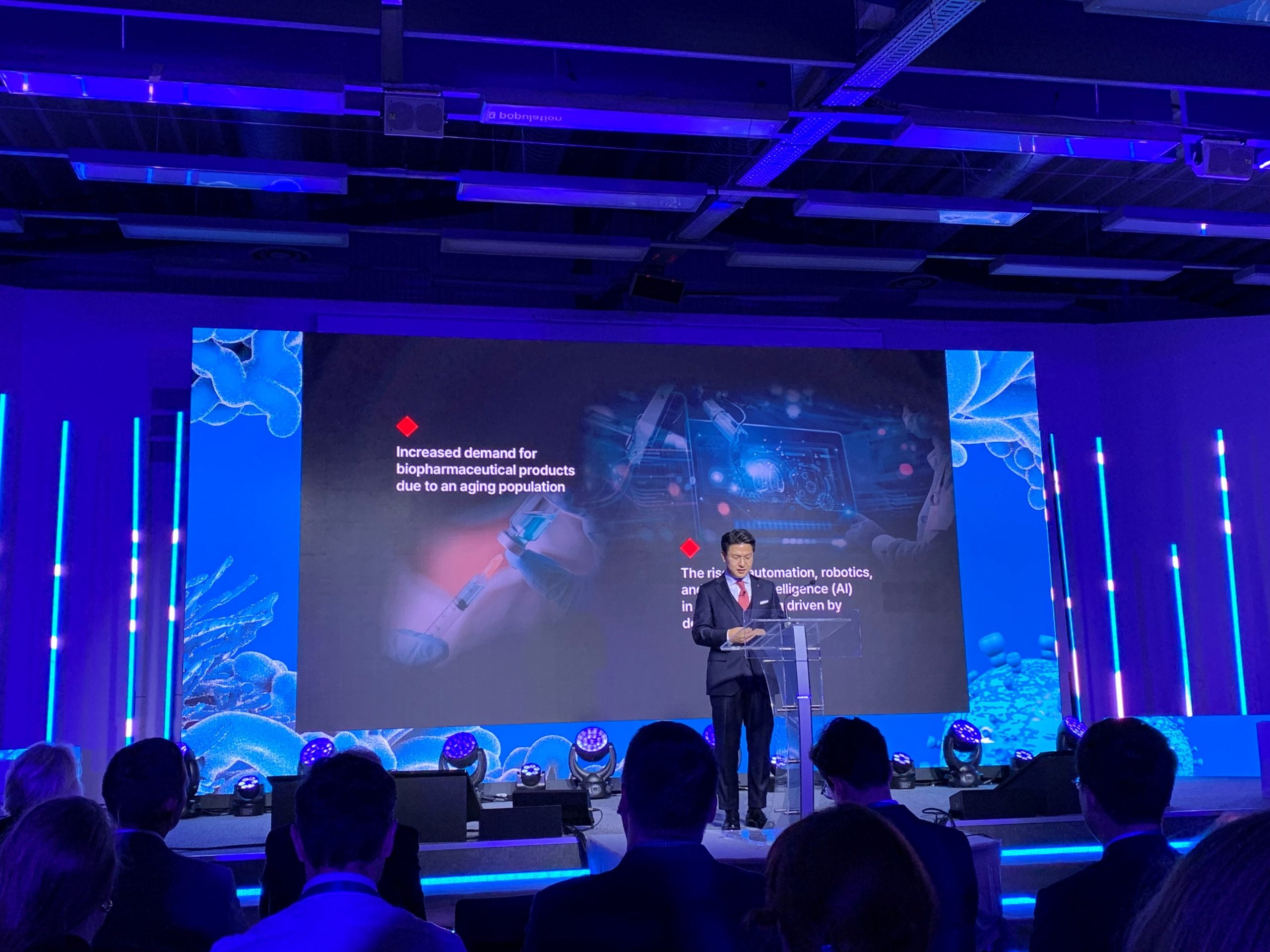
Widespread adoption of automation in drug manufacturing is key to addressing the healthcare issues that affect ageing populations, said Lotte Biologics CEO Richard Lee, in an opening keynote at the ongoing Life Sciences Baltics 2023 conference.
Lee said that the use of automation in the biopharmaceutical industry, which includes technologies such as artificial intelligence (AI), robotics and big data, still lags behind others.

US Tariffs are shifting - will you react or anticipate?
Don’t let policy changes catch you off guard. Stay proactive with real-time data and expert analysis.
By GlobalDataLee commented: “We operate in one of the most highly regulated industries in the world, but we cannot use this as an excuse not to pursue automation in the biopharmaceutical industry.”
The World Health Organisation (WHO) states that by 2050, the world’s population of people aged 60 years and older will double to 2.1 billion. Lee says that, unlike previous decades, where research focused on communicable diseases, treatments for diseases such as diabetes, cardiovascular issues, cancer, and neurodegenerative conditions are healthcare’s “next mission”.
The conference, which began today and will close on 21 September, is being held in Vilnius, Lithuania.
Lee added that manufacturing capabilities for producing drugs that treat non-communicable diseases need to keep up with populations that are becoming increasingly older. More optimised manufacturing could also drive down costs, making treatments more accessible.
Lee pointed to South Korea, where Lotte is based, as an example of automation adoption in the manufacturing industry. According to data in the World Robotics 2021 report, the country has the most manufacturing robots in the world.
Lee added: “Nations such as South Korea, Singapore and Germany have taken proactive steps to integrate automation into their manufacturing sectors.”
Lotte Biologics itself is planning an expansion to New York with the opening of a plant that was previously owned by Bristol Myers Squibb (BMS). The company is also building three megaplants in South Korea, where it plans to use automation throughout its production processes.
In July, the European Medicines Agency (EMA) released a draft paper outlining its thoughts on the use of AI in a medicine’s life-cycle, including manufacturing steps, amid changing regulatory frameworks.






